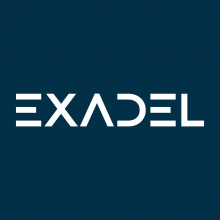
There are 9 Companies in Chile
that provide Angular Development Services!
For decades, Chile has grown in different areas, and the technology sector is no exception. In this area, the country continues to be a reference in the region, as one of the most stable countries in Latin America. In 2025, the country was ranked 42nd out of the 69 nations evaluated by the Digital Competitiveness Index ranking, prepared by the International Institute for Management Development (IMD).
Discover Top IT Companies in Chile specialized in Angular and other related services. Find the best IT service providers for your projects.
Angular (formerly AngularJS) is a popular open-source web application framework maintained by Google and a community of developers. It's used for building dynamic, single-page web applications (SPAs) and web-based applications in general. Angular provides a structured and organized way to create complex web applications by extending HTML with additional features and enabling the development of interactive, responsive, and maintainable front-end web interfaces.
Handpicked companies • No obligation to hire • 100% risk-free
Featured Companies in Chile
This month, the following Angular Development companies managed to provide an outstanding service and support. It's worth taking a look.
Agencia líder en CRO, UX y desarrollo web. Optimizamos conversiones y crecimiento digital desde 2010.
Explore Top Angular Development Companies in Chile

Las Condes, Chile Head office in: United States
Need a reliable staff augmentation partner? We make it easy:no minimum hiring requirements you can start small and scale once you’re confident
Consultoría SAP / SAP Consulting Services | Recruiting | Outsourcing
Tech specialists for Software Development, e-commerce, Cloud Solutions and Staff Augmentation services.
Ki Teknology is one of the leading software, web, and mobile development companies in Chile with over 19 years of experience in the IT market and clie...
NICOSOFT.NET is a Corporate Web Design Service, specialized in Website Optimization (S.E.O.) for Search Engines (Search Engines, especially Google) or...
Services:
Filter Angular Development Companies in Chile by Cities
Find the right tech company near you or from a specific city. Some of the best companies might be located in smaller cities.
Find more Angular Development companies around the world
TechBehemoths is the world's most advanced and user-friendly platform to match IT Companies with real clients without hustle.
The Chilean ICT Industry: Data & Insights
For decades, Chile has grown in different areas, and the technology sector is no exception. In this area, the country continues to be a reference in the region, as one of the most stable countries in Latin America. In 2025, the country was ranked 42nd out of the 69 nations evaluated by the Digital Competitiveness Index ranking, prepared by the International Institute for Management Development (IMD). Chile indeed fell two places in the latest version of this ranking, although it has remained as one of the leaders in technology in the region.
Chile also has a recognized presence of multinational companies that today are leading the great technological and digital transformations in the world. Entities such as Google, IBM, and Cisco have data and innovation centers in Chile that position the country’s industry as an interesting business platform in Latin America.
Why You Should Work With IT Companies From Chile
Tech companies have the chance to expand into foreign territories and regions that show promise in the technology sector. While the Chilean technology industry is at a turning point in relation to the path the country wants to continue, the industry is aware of the enormous challenges of its reality: greater clarity in regulations, fraud prevention, financial portability, personal data protection, biometrics, and cybersecurity.
What You Should Be Aware of When Working With IT Companies From Chile
In the IMD rating, Chile fell 2 positions in 2025, and this is due to several reasons that affect the IT industry.
First of all, according to bnamerica, there is a demand for young professionals in the IT market, as many new web agencies register a shortage of workforce, and it may cause system collapse by 2025 if numbers don’t improve. The reason behind this issue is the low prices on the local web market, which makes the IT industry in Chile a great outsourcing opportunity for foreign companies.
Additionally, skilled workers in the Chilean IT sector are considered to be inexperienced enough for local IT companies, which in turn misses the chance of training and preparing professionals for their work.
How Reliable Are IT Companies From Chile?
There are no clear strategies at the corporate or business association level for ICT industry development. Most ICT companies are part of the Chilean Association of Companies in ICT (ACTI5 ) or the Chilean Society for Software and Services (GECHS6 ). These companies are focused on providing particular ICT services to public and private organizations, or to citizens. While ACTI groups the big companies, GECHS meets small and medium enterprises, and this means that these business associations have different goals because they represent diverse interests, according to a report of PRO-IDEAL. This means that cooperation between foreign companies and local IT and web companies must be established at two different levels, and the reliability of companies may differ depending on each level.
How Does the IT Industry in Chile Relate to the Neighboring Countries?
The Chilean IT industry is considered one of the most well-developed in the region, mostly due to the presence of big players on the local market. However, on the existing IT infrastructure, local web agencies and IT companies do not fully utilize it, as there is a shortage of an experienced workforce. On the other hand, the Chilean IT industry may become a leading model of innovation in the region for neighboring countries, as it applies more modern technologies in developing web and IT products.
What is Angular and what are its benefits for your projects?
Angular (formerly AngularJS) is a popular open-source web application framework maintained by Google and a community of developers. It's used for building dynamic, single-page web applications (SPAs) and web-based applications in general. Angular provides a structured and organized way to create complex web applications by extending HTML with additional features and enabling the development of interactive, responsive, and maintainable front-end web interfaces. Here are some key aspects and concepts of Angular:
-
Component-Based Architecture
-
Templates
-
Directives
-
Dependency Injection
-
Services
-
Routing
-
Observable and RxJS
-
Modules
-
Testing
-
Cross-Platform
Angular's structured approach, strong tooling, and vibrant ecosystem of libraries and extensions make it a powerful framework for building modern web applications. It is particularly well-suited for large and complex projects where maintainability and scalability are crucial.
Companies may choose Angular over other front-end frameworks for their projects for a variety of reasons, depending on their specific needs and priorities.
-
Google Backing: Angular is developed and maintained by Google. This association often gives companies confidence in its long-term support, stability, and continuous improvement. Google's involvement is seen as a sign of reliability and commitment to the framework.
-
Mature and Established: Angular has been around for a while and has a strong track record of being used successfully in large-scale enterprise projects. It has a well-defined architecture and best practices, which can be beneficial for maintaining and scaling applications over time.
-
TypeScript Support: Angular is built with TypeScript, a statically-typed superset of JavaScript. TypeScript provides better tooling, code maintainability, and catches errors at compile time, which can reduce bugs and enhance code quality, making it attractive to companies that prioritize robust code.
-
Full-Featured Framework: Angular provides a comprehensive set of tools, libraries, and features out of the box, including routing, form handling, HTTP client, and more. This can save development time and effort compared to integrating multiple third-party libraries in other frameworks.
-
Two-Way Data Binding: Angular offers powerful two-way data binding, which allows for automatic synchronization between the data model and the view. This feature can make it easier to develop interactive and responsive user interfaces.
-
Large and Active Community: Angular has a large and active community of developers and a wealth of resources, including documentation, tutorials, and third-party libraries. This can be beneficial for finding solutions to common problems and getting support when needed.
-
Enterprise-Ready: Angular provides features like dependency injection, modularity through modules, and a strong emphasis on testability. These characteristics are well-suited for building robust and maintainable enterprise-level applications.
-
Strict Coding Standards: Angular enforces a set of coding standards and best practices, which can lead to more consistent and readable code. This can be important for companies with multiple developers working on the same codebase.
-
Cross-Platform Development: Angular can be used for building both web and mobile applications. Companies looking to develop applications for multiple platforms may choose Angular for its ability to share code between web and mobile apps using technologies like NativeScript or Ionic.
-
Integration with Backend Technologies: Angular can easily integrate with various backend technologies and APIs. This makes it suitable for projects where the front end needs to communicate with different types of server-side applications.
-
Security Features: Angular provides built-in security mechanisms to help prevent common web vulnerabilities like Cross-Site Scripting (XSS) and Cross-Site Request Forgery (CSRF). This can be crucial for projects with high security requirements.
-
Ecosystem and Tooling: Angular has a rich ecosystem of tools, extensions, and IDE support, including Angular CLI for project setup and management. This can streamline development workflows and improve productivity.
Ultimately, the choice of Angular or any other framework depends on the specific project requirements, the development team's expertise, and the company's long-term goals. Companies evaluate various factors to determine which framework aligns best with their needs, resources, and priorities.







